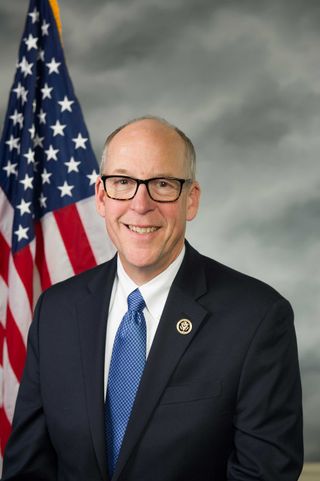Edge, Heal Thyself

WHY THIS MATTERS: Edge providers realize they have great regulatory control if they begin the process themselves.
Cable and other broadband providers have been trying to get Washington to start regulating edge behemoths with the same vigor they have applied to internet service providers, which they branded as snakes in the virtuous garden. But under D.C.’s increasingly critical gaze, it turns out that those companies may be doing much of the heavy lifting themselves.
The political ad field has been tilted in favor of online platforms, at least in terms of a lack of disclosure mandates. While cable operators and broadcasters are required to identify the funders of political ads, the Facebooks and Googles of the world are not.
There is a bill, the Honest Ads Act, that would make the stakes more fair, but as with most legislation these days, it faces a divided Congress and a molasses-slow process.

In advance of Facebook chairman and CEO Mark Zuckerberg’s trip to the Capitol Hill woodshed in April, the social-media platform promised to start requiring the same kind of disclosures on issue advertising as broadcasters and cable operators, and last week it made good on that promise.
Elsewhere on the Edge Provider Self-Regulation Tour, tech companies were offering up self-monitoring guidelines for control of online content, clearly seeing the handwriting on the wall — or the question of a potential presidential signature on legislative mandates — given the attention on issues from fake news and Russian election meddling to sex-trafficking and privacy-protection concerns.
The New America Foundation’s Open Technology Institute, which formulates policy and regulatory reform, and whose funders include Google, Facebook and Amazon (along with Comcast), joined with a coalition of other groups and academics to call for protecting free expression online. Together they outlined some “minimum standards” for tech platform content moderation. That moderation includes efforts to take down content or suspend accounts.
Broadcasting & Cable Newsletter
The smarter way to stay on top of broadcasting and cable industry. Sign up below
The so-called Santa Clara Principles boil down to three main ones:
• Publish the numbers of posts removed and accounts permanently or temporarily suspended due to violations of their content guidelines.
• Provide clear notice to all users about what types of content are prohibited and clear notice to each affected user about the reason for content removal or the suspension of their account.
• Enable users to engage in a meaningful and timely appeals process for any content removals or account suspensions.
Leading Edge Movement
The edge may be moving in the right direction to appease Washington, but they face a skeptical audience on the Hill.

Last week, Rep. Greg Walden (R-Ore.), chairman of the powerful House Energy & Commerce Committee, extended an invitation to the edge, but with an “or else” attached.
“This committee and the American people need to hear directly from the major players in the tech industry,” Walden said. “Consumers deserve a deliberative and exhaustive examination of the digital ecosystem that has become a part of our lives. In the weeks following our hearing with [Mark] Zuckerberg, a critical question looms: Can the tech industry self-regulate, or does the federal government need to intercede? This committee intends to answer that question, and we’ll need to hear directly from the brightest minds in tech to do it.”
Edge providers are likely hoping that self-regulation satisfies Washington, though Zuckerberg, under pressure to clean up Facebook’s act, or else, has told the Hill he recognizes carefully crafted legislation/regulation may be appropriate, and in the cards, for the edge.
Contributing editor John Eggerton has been an editor and/or writer on media regulation, legislation and policy for over four decades, including covering the FCC, FTC, Congress, the major media trade associations, and the federal courts. In addition to Multichannel News and Broadcasting + Cable, his work has appeared in Radio World, TV Technology, TV Fax, This Week in Consumer Electronics, Variety and the Encyclopedia Britannica.

